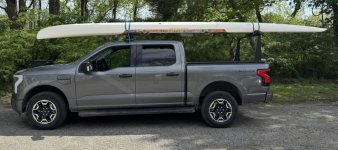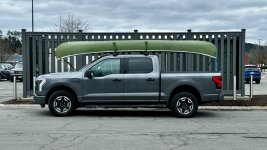Our Canadian government has declared that by 2035 all vehicles sold in Canada will have to be electric. I'm hoping they come to their senses before then. Northern Ontario represents a very small percentage of the population, but every single vehicle that needs to cross Canada must come through here.
At the moment, the stretch from Hearst to Longlac, around 130 miles, has no gas available, let alone electric vehicle chargers. Geraldton to Nipigon, a hundred mile stretch, is the same. There is one charger in our town.
I like the idea of hybrids, I'm wondering what the maintenance records are like on them, and if Joe Smoe, the town mechanic is able to fix them.




